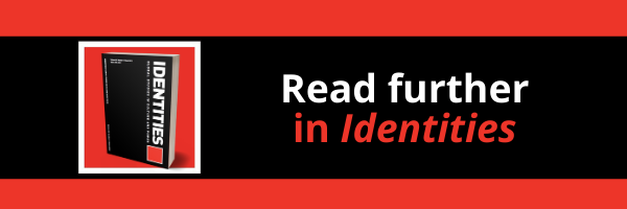|
|
|
Due to the accessibility of the internet and the ability of online spaces to bring people together, platforms like social media sites and web forums have allowed globally dispersed communities to engage in conversations about identity and belonging. For my Identities article, ‘Connectivity, contestation and cultural production: an analysis of Dominican online identity formation’, I collected and analysed text data from a web forum that I call ‘DRLive’ to show the kinds of identity discourses that happen online. This site caters to all things Dominican Republic, with free and open forum pages where Dominicans and non-Dominicans participate in discussions covering numerous topics. Adding to work on diaspora, migration, and cultural production among Dominicans, I propose forums and other virtual spaces as additional sites where diasporic and non-diasporic Dominicans come together to talk about and challenge evolving interpretations of identity, history and cultural memory.
Cultural memory, which is defined as a collection of commonly shared historical moments and experiences, is passed on and shared over time by members of a nation. In the case of this forum, for example, I find that ‘the contrived historical narratives propagated in the Dominican Republic throughout the 19th and 20th centuries continue to inform how Dominicans in the country and in the diaspora interpret and construct Dominicanidad.’ Work on virtual spaces often seeks to address how migration might affect the maintenance of cultural memory, especially as second- and third-generation immigrant communities emerge far from their homeland.
These subsequent generations experience diasporic versions of their culture that are informed by relocation and cross-cultural exchange with other societies, creating evolved interpretations of identity and cultural memory that can conflict with more essentialist perspectives. For example. in another study focusing on online Kurdish communities, Mahmod found that the ‘emotions, pride, and memories’ that capture the essence of being a ‘real Kurd’ clash with the new, diasporic understandings of Kurdish identity produced by Kurds living in Western countries.
Similarly, in my article, I find that the online forum can be an arena for identity contestation, where what I refer to as traditionalist understandings of race and culture clash with non-traditionalist perspectives. When this happens, users rely on various strategies to rouse cultural memory, evoke racialised emotions and establish cultural legitimacy. These strategies include drawing on historical events to ground discussions about race and the use of strategic language and self-description in their posts to indicate the legitimacy of their Dominican identity. By strategic language I refer to the word choices users made in describing their racial and ethnic identity to other users in the forum. For example, some users employ terms like ‘typical Dominican’ or ‘full blooded Dominican’ to describe themselves, and still others say they’re ‘Dominican as Perico Ripiao’, alluding to a genre of Dominican music that is closely tied to state constructions of Dominican national and racial identity. By attempting to present themselves as ‘real’ Dominicans, some forum users can present themselves as an authority on who is or isn’t Dominican, as well as how particular historical events should be interpreted. At first, I thought that this delineation would be primarily location based, with users based in the Dominican Republic more likely to want to present themselves as real Dominicans. However, I found instead that how a participant in the forum utilises these strategies is a better indicator of where a user might fall in the debates about Dominican racial identity that emerge in the forum. As virtual spaces continue to grow and evolve, it will be important to keep thinking about the types of conversations that they do or do not facilitate, and how they continue to bring globally dispersed communities together.
Blog post by Pamela Zabala Ortiz, Duke University, USA
Read the Identities article: Ortiz, Pamela Zabala. Connectivity, contestation, and cultural production: an analysis of Dominican online identity formation. Identities: Global Studies in Culture and Power. DOI: 10.1080/1070289X.2021.1927420
Explore other relevant Identities articles:
Looking as white: anti-racism apps, appearance and racialized embodiment The dying Black body in repeat mode: the Black ‘horrific’ on a loop Digital institutions: the case of ethnic websites in the Netherlands
0 Comments
Your comment will be posted after it is approved.
Leave a Reply. |
|
Explore Identities at tandfonline.com/GIDE |
|
The views and opinions expressed on The Identities Blog are solely those of the original blog post authors, and not of the journal, Taylor & Francis Group or the University of Glasgow.


